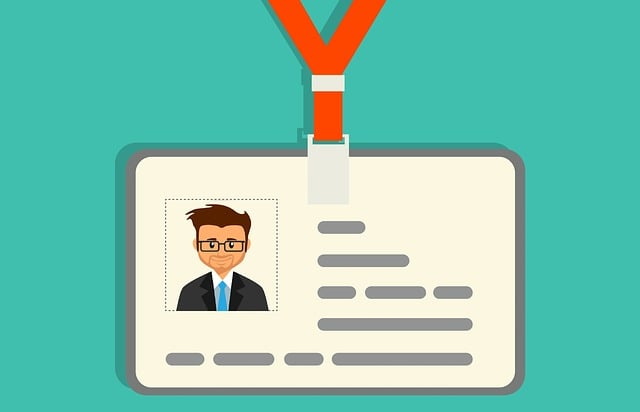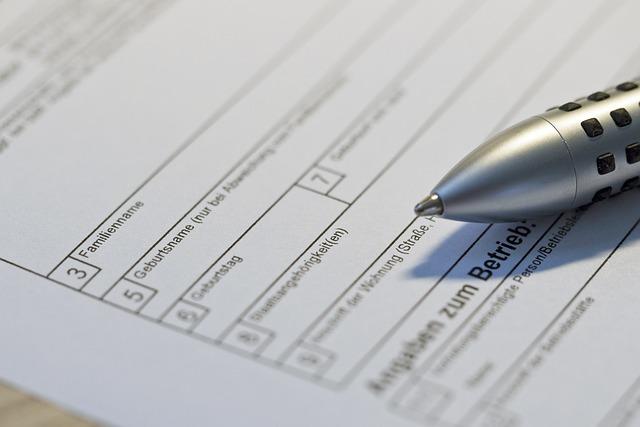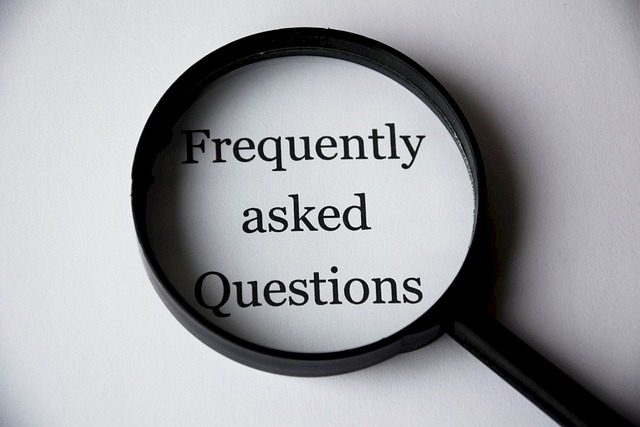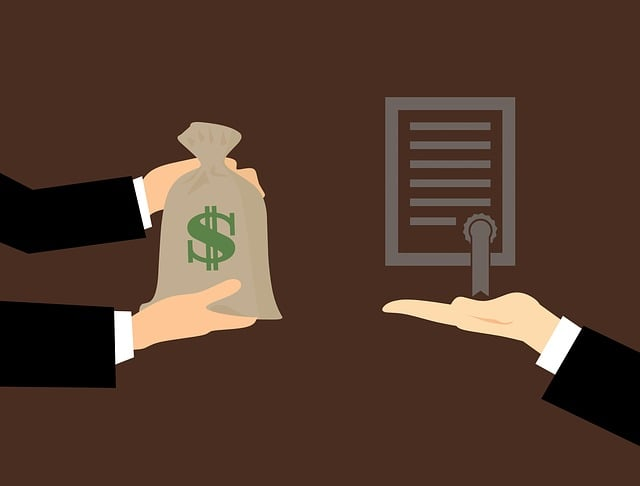What is a Business License?
A business license grants your company the right to operate. There are various types of licenses and permits required in different industries. Some business licenses are mandatory, while others could be optional.
Businesses can get licenses from local or state government agencies. Some licenses require applying to a federal agency. Other times a university, college, or professional organization issues certification to do business in a specific sector.
What are the different types of Business Licenses?
Business licenses, certifications, and permits vary by industry, state, and local government.
Business Operating License
The most common form of a business license is an operating license, also called a general business license. It’s what most people are referring to when they say “business license.”
As its name implies, an operating license grants your business permission to do business in its given region. Some operating licenses are granted on the state level. In those cases, you typically apply to the Secretary of State for general business licenses.
Other times, a local or city government issues the necessary licenses. Sometimes, this license is optional, depending on where your business operates.
DBA Statement, License or Permit
Companies that want to “do business as” (DBA) a different name sometimes have to obtain a special license or permit. Other times, you might just need a statement.
The process allows you to operate under a different name. Most DBA licenses are issued by state or local governments.
Seller’s License
Also called a Sales Tax License or Sales Tax Permit, this license allows your business to collect sales tax when you sell goods. It’s not required in states with no sales tax.
Location and Land Use Permits
Most businesses must obtain various permits to operate in addition to a local business license, especially if you’re a brick-and-mortar business. Here are some standard permits you can expect to obtain for your business.
Zoning Permit: Required to operate your business in a given area. Check with local zoning ordinances to see if your area is zoned for business. If the place where you want to run your business isn’t zoned for your industry, you must apply for a conditional use or variance permit.
These permits are usually issued at the local level. Apply to your local zoning authority, land-use agency, building department, city council, or municipal building office.
Home Occupation Permit: Most residential areas are not zoned for business. If you want to run a business out of your home and use it as the primary location, including an online business, you’ll usually need a special permit.
In some cases, you might need it to work from home. Apply to one of the same entities listed above for zoning permits.
Building or Construction Permit: Want to add a parking lot or additional facilities to the building where you operate your business? In most cases, you’ll need a special permit to add or make significant changes to a commercial property.
Local agencies regulate and issue these permits more than state agencies. Each jurisdiction sets criteria for what changes require a permit.
Sign Permit: Putting a sign up for your business also typically requires a permit. Local agencies set rules for the size of the sign and where to place it.
Health & Safety Licenses
If your business sells food or deals with environmental hazards, you’ll likely need a health or safety permit or license. State agencies typically issue these permits and licenses.
Health Permits: Required for operating a business that prepares, handles, or serves food. Restaurants, hotels, and hospitals must have certifications showing they meet or exceed basic health and safety standards.
Fire Department Permit: Businesses that use flammable materials or gather customers in a single location often need fire department permits. Even if a permit is not required, you’ll typically need to pass an inspection from your local fire department.
Environmental Licenses: Required for any business or activity discharging an environmental hazard or contaminant into the air or water. In addition to the cost of the license or permit, you might have a cost per ton, depending on the waste and your location.
Special State Licenses and Permits
Certain businesses must acquire a special state business license. Here are some industry-specific licenses and permits you should acquire.
Alcohol Sales & Production: You’ll need a state-issued liquor license to sell alcohol at a bar, restaurant, or retail store. You might also need a license to produce or transport alcohol.
Apply to your state’s alcohol commission or liquor authority. Alcohol businesses also require a federal license.
Gambling & Casino Operation: Casinos require special gambling permits to operate. In some states, you only need a general gambling license. Other states, like Nevada, require a license for each game offered at the casino.
Lottery retailers also must acquire a license from the state. However, these licenses are much less expensive than casino licenses and often easier to obtain. Apply to your state’s gambling commission.
Special Federal Licenses & Permits
Some industries are regulated on the federal level. The US Small Business Administration (SBA) provides a complete list of types of businesses that require a federal license and where to apply.
Here are the common federal business licenses or permits.
Agriculture: Farms and meat processing plants need a federal license to transport or produce animals, animal byproducts, biologics, or plants. Apply to the U.S. Department of Agriculture for this license.
Alcohol: Similar to the state license, any business that produces, transports, or sells alcohol needs a federal license in addition to any state permits. Apply to the Alcohol and Tobacco Tax and Trade Bureau.
Aviation: Businesses that operate an aircraft, perform maintenance on aircraft, or transport passengers or cargo via air travel must have an aviation license. Apply to the Federal Aviation Administration (FAA) for this license.
Broadcasting: A license is required to broadcast entertainment or information on television, radio, wire, cable, or satellite. You can apply to the Federal Communications Commission (FCC) for this license.
Firearms, Explosives, and Ammunition: You must obtain a license from the Bureau of Alcohol, Tobacco, Firearms, and Explosives (ATF) to manufacture, ship, or sell firearms, explosives, or ammunition.
Fish and Wildlife: Businesses engaged in hunting, commercial fishing, transporting animals, or shipping wildlife products must obtain a license from the U.S. Fish and Wildlife Service.
Investment Advising: Businesses that provide financial advice on securities must obtain a license from the U.S. Securities and Exchange Commission (SEC).
Maritime Transportation: If your business transports or intends to transport passengers or cargo via sea travel, you’ll need a maritime transportation license. You can apply for this license through the Federal Maritime Commission.
Mining and Drilling: Mining or drilling operations that yield coal, oil, natural gas, or other energy sources need a federal business license to operate. Apply to the Bureau of Safety and Environmental Enforcement for this license.
Nuclear Energy: Businesses that operate a facility or facilities that deal with nuclear reactors, materials, or waste must follow regulations and permitting requirements from the U.S. Nuclear Regulatory Commission.
Preparation of Meat Products: Restaurants or grocery stores that prepare, handle, or serve meat products need a federal license from the FDA.
Pharmaceuticals: Producing or selling medications, vaccines, or other pharmaceuticals is highly regulated. You must acquire a license from the Food and Drug Administration (FDA). Selling pharmaceuticals requires local permits as well.
Transportation and Logistics: Businesses operating or overseeing heavy vehicles transporting passengers or cargo need a federal license. You can apply for this license from the U.S. Department of Transportation and the Federal Motor Carrier Administration.
Do I need a Business License?
The answer to this question depends on your industry, entity type, and state. In most cases, your small business must have at least one license. However, sole proprietorships in certain states might not have to get a license.
A general operating license might be optional but could lend credibility to your business. Some customers won’t do business with an unlicensed company.
If you’re operating in one of the many regulated industries, you’ll most likely need a license from the state and federal agencies that oversee the industry.
How do I get a Business License?
Obtaining a business license is usually part of the startup process when launching your company. In most cases, you’ll follow these steps to establish your business and apply for your business license(s).
Step 1: Choose Your Business Entity.
The first step in setting up your business is to decide how it will be structured. There are several types of business entities to choose from.
Sole Proprietorship
You’re the sole proprietor if you’re the only business owner and don’t file paperwork to establish another business structure. That means you’re responsible for all debt and obligations.
Sole proprietors report business income as self-employed income on their taxes. The business name is the individual’s name, but you can opt for DBA under a different name.
Partnership
A general partnership involves more than one business owner, but all owners still report business income as self-employed income for tax purposes. Partners share liability, and personal assets are not separate from the business.
In most cases, the business name combines the last names of the partners. However, you can also opt for a separate DBA name.
Limited Liability Company (LLC)
An LLC is a simple business structure where the owners’ personal assets are protected from liabilities such as lawsuits or debt. For tax purposes, profits pass through the business entity and get reported on the business owners‘ personal tax returns.
Corporation
Business owners looking for a fixed operating structure should consider forming as a corporation. It’s also a good idea if you plan to attract new investors for the business down the road.
Nonprofit
Structured similarly to a corporation, but profits cannot be distributed to business owners. Some nonprofits receive tax exemptions.
Step 2: Get an Employer Identification Number
Many business license and permit applications require your federal tax identification number or employer identification number (EIN). Sole proprietors can use their social security numbers, but all other businesses must use an EIN.
Apply to the IRS for an EIN. It’s a simple process, and you can get the number immediately.
Step 3: Identify Which Licenses or Permits Your Business Needs
The exact license, permit, and certification requirements for your business depend on your industry and the local, state, and federal government requirements. There are several ways to determine which licenses or permits your business needs and complete the business license application.
The first step would be to check with the Secretary of State Office, the Department of Revenue, or a similar state agency. You can also contact local government offices about the required permits.
Another option is to access resources available at your local Small Business Administration office. They can help you identify any federal requirements as well as state and local business licensing requirements.
You can also hire a business attorney, as they can help you identify and apply for any licenses or certifications. Contacting a business attorney early in the process might be helpful as they can also help you with your business formation.
Step 4: Apply for Your Business License
Once you’ve identified which licenses or permits your business must have, the next step is to apply for them. You might have to apply to multiple agencies, such as applying for an operating license from the state and a health permit from your local Department of Health.
Try to identify all requirements and apply for them simultaneously to save yourself time and aggravation. Several resources are available to help you apply for multiple requirements at once.
If you contact your local SBA office for license and permit requirements resources, you might also have resources for submitting everything you need through a single source. Or, if you hired a business attorney, your legal representation could compile and submit all documents on your behalf.
Step 5: Renew Your Business License
Unfortunately, the process doesn’t end entirely once you get your license. Most business licenses must be renewed periodically.
Some renewals occur automatically, while you must apply for others. Consult your attorney on renewals or create a calendar to track renewal due dates to ensure you don’t miss a deadline.
Frequently Asked Questions
Here are the most common questions about obtaining a business license.
How much does a Business License cost?
Business license fees can vary significantly depending on the type of license required and your state. A general operating license typically runs between $50-$500.
Most basic permits run from $50 – $250. Other permits depend on the size of your construction project, building, or zoning needs.
Specialty licenses can get more expensive. Medical license application fees can run between $260 – $1,425+. A liquor license can start at $300 in some states or over $10,000 in other states.
Pharmaceutical companies can pay up to $45,000 for a license to produce medications. Companies that produce or dispose of hazardous materials can also pay five figures for licenses.
In addition to license and permit costs, some companies will have additional fees. For example, a company might get able to get a license for a lower amount but must have a $10,000 security bond.
Do I register my Business or get a Business License first?
You will typically create and register the business before applying for a business license. Most business license and permit applications require the business name and contact information. You’ll usually have to provide the EIN as well.
What are the pros & cons of getting a Business License?
Applying for a business license carries advantages and disadvantages. Sometimes, it’s not an option if you should get one or not – it is required. However, some licenses are optional.
Here are the pros and cons of applying for a business license.
Pros:
- Grants your business the right to operate in a given area or industry.
- Helps establish your business as legitimate to customers.
- Many lenders feel licensed businesses are less of a risk than unlicensed businesses.
Cons:
- It can be a significant cost from your startup budget.
- Typically requires intensive paperwork.
- You must track and apply for renewals.
How much does it cost to start a business?
Startup costs largely depend on your location and the size of the business you’re starting. When estimating startup expenses, you should factor in the cost of the business licenses.
Microbusiness and home businesses can start off as low as $2,000 – $5,000 but most small businesses require $10,000+ to launch. And the initial costs are just the start.
You should budget ahead for at least the first six months or, ideally, the first year of operation. If your company is a brick-and-mortar business with employees, you must account for rent payments and overhead like payroll and utilities.
The first year’s costs could easily surpass $100,000.
How can I get financing help for starting a business?
You could consider an SBA microloan to cover the startup costs to launch your business. Other options include personal loans, business credit cards, or retirement savings.
Once your business has a few months in operation and revenue to show, you’ll access additional financing options that could help you grow at the six-month, one-year, and two-year marks.
Consider one of the following small business loans to help with keeping a new business in operation:
- Business term loan.
- Business line of credit.
- SBA loans.
- Merchant cash advance.
- Invoice factoring.
- Bad credit business loans.
- Equipment financing.
- Working capital loans.
- ERTC advances.
How to Get a Business License – Final Thoughts
There are many ways for small business owners to research which business license(s) are required for their industry and location. The more the government regulates your sector, the more likely you’ll have to obtain multiple licenses or permits.
For highly regulated industries, you should consider hiring a business attorney to help ensure you follow the many rules and stipulations. You can also visit your local SBA office for in-depth resources on business license requirements and where to apply.
Contact us if you have more questions on business license requirements or want to apply for a small business loan to help power growth. Our loan experts can help you find the best funding program for your business needs.























